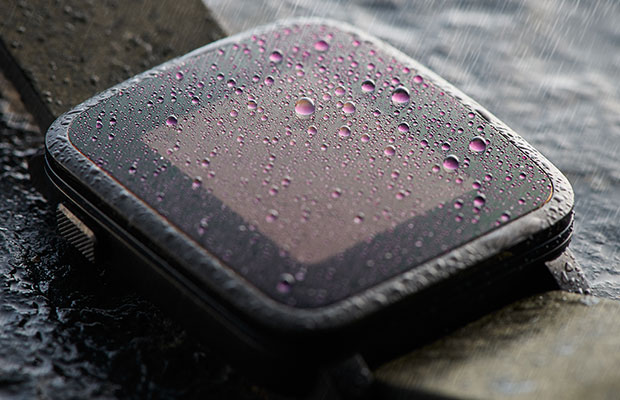Pebble sinks amid market consolidation
Gadgets and the services that support them are often the first things to go when a company closes. For users, there’s not much to be done

The Pebble, a genuinely innovative smartwatch, will be sorely missed, and there's little customers can do to save it
In 2012, everything looked so promising for Pebble. The little company that could was responsible for a Kickstarter campaign that raised over $10m and legitimised crowdfunding as a method of developing a product. Its first smartwatch was years ahead of competitors, and made the promise of a Dick Tracey-style wrist-phone seem plausible. Two more Kickstarter campaigns later, Pebble raked in over $40m of funding in total and amassed a dedicated community of users and developers.
But now the dream is over, with Pebble recently being purchased by Fitbit as the smartwatch market consolidates. As reported by Bloomberg at the time of the deal, the company was purchased for less than $40m; much less than the $70m Intel reportedly offered prior to the launch of the Pebble 2, and a tiny fraction of the $740m offered by Citizen prior to that. Pointedly, Fitbit purchased Pebble’s software and programmer talent, but not its products, leaving the functionality of the company’s smartwatches adrift in a sea of uncertainty. Fitbit issued a statement saying it will support Pebble’s functionality for the next year, but beyond that it seems unlikely.
As more technology utilises cloud systems, an increasing number of devices and services will cease to function when the money for server bills dries up. This lingering uncertainty is bad enough for technology users, but private efforts to keep these systems running exist in a legal grey area.
Clouded vision
For anything that requires an internet connection to function, to the ongoing upkeep of servers is necessary. Cloud services have unlocked a world of possibilities for both businesses and consumers by allowing remote systems to do jobs that would not be possible by a self-contained computer that was, say, small enough to fit on a wrist. While this makes devices more capable, it places a lifespan on them; once the servers go down, devices such as the Pebble will lose some, if not all, of their functionality.
When a company can’t support a product indefinitely, its upkeep often falls into the hands of enthusiasts building their own solutions
This was the reality facing people who purchased a Revolv hub, a smart home system that controlled things like sound systems, lights and burglar alarms. The company was purchased by Alphabet’s subsidiary Nest in 2014, and in 2016 it announced it would be discontinuing Revolv’s services. Anyone who invested in the system suddenly found their $300 hub ‘bricked’ and in need of an alternative way to switch on their lights. The more money you spent buying into the system, the worse you were hit. It’s a situation that could plausibly befall Pebble; at some point maintaining the systems that support out-of-date products will become an unnecessary expense for Fitbit.
Victimless crime
When a company can’t support a product indefinitely, its upkeep often falls into the hands of enthusiasts building their own solutions. Pebble’s particularly enthusiastic community of developers could certainly take up the baton. However, efforts to keep these systems running are in a legal grey area; keeping them working requires access to the code underpinning the devices that, as is made clear in end-user license agreements people rarely read, remains the property of the manufacturer. This code is unlikely to be handed over freely, as it is often the only thing of value left when a technology company dissolves. In the case of Pebble, software was a big part of the deal, so Fitbit would probably be reluctant to give it away.
The right to modify products is one courts have so far been unsupportive of. In February 2016, a federal appeals court in the US ruled patent holders had the power to set conditions of use on their products; modifying a product to keep it running when the servers go down could, by extension, be considered patent infringement.
Pull the plug
Anyone who purchases products from a digital service, such as iTunes or Steam, also runs the risk of their investments disappearing should the company that manages the service shut down. Add in the legal uncertainty surrounding the maintenance of these systems, and a business disaster seems inevitable at some point. While right now it might seem impossible for companies like Amazon, Google or Dropbox to go under, business shifts are inevitable. The individuals and businesses that rely upon their services could lose an incalculably valuable amount of data that is rightfully theirs.
More protections need to be in place for users and companies that indirectly rely upon cloud services. While it is unrealistic to expect these services to continue forever, legal rights are needed for the individuals who are willing to do the work needed to keep the systems running, especially as more products become part of the Internet of Things. It’s that or end up in a never-ending cycle of product redundancy, where a business deal means you can no longer switch your kitchen lights on.













